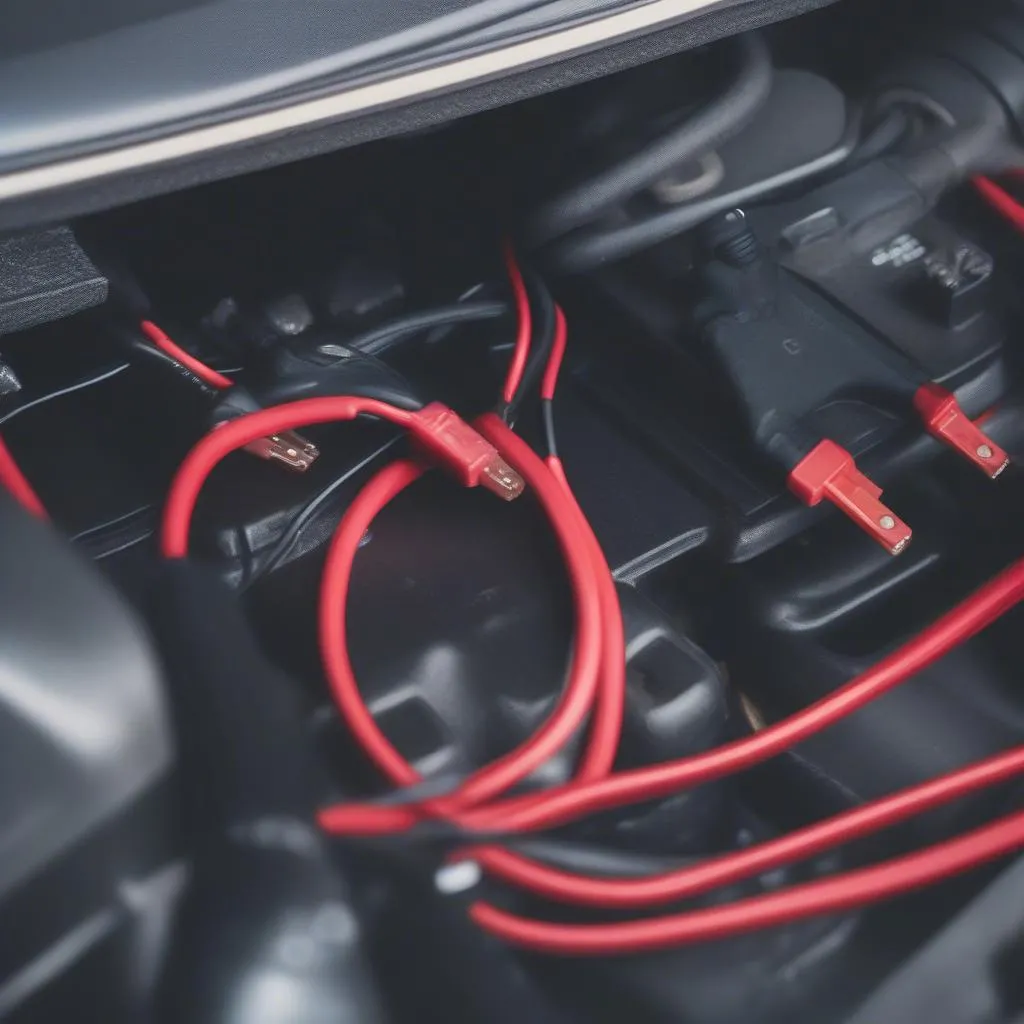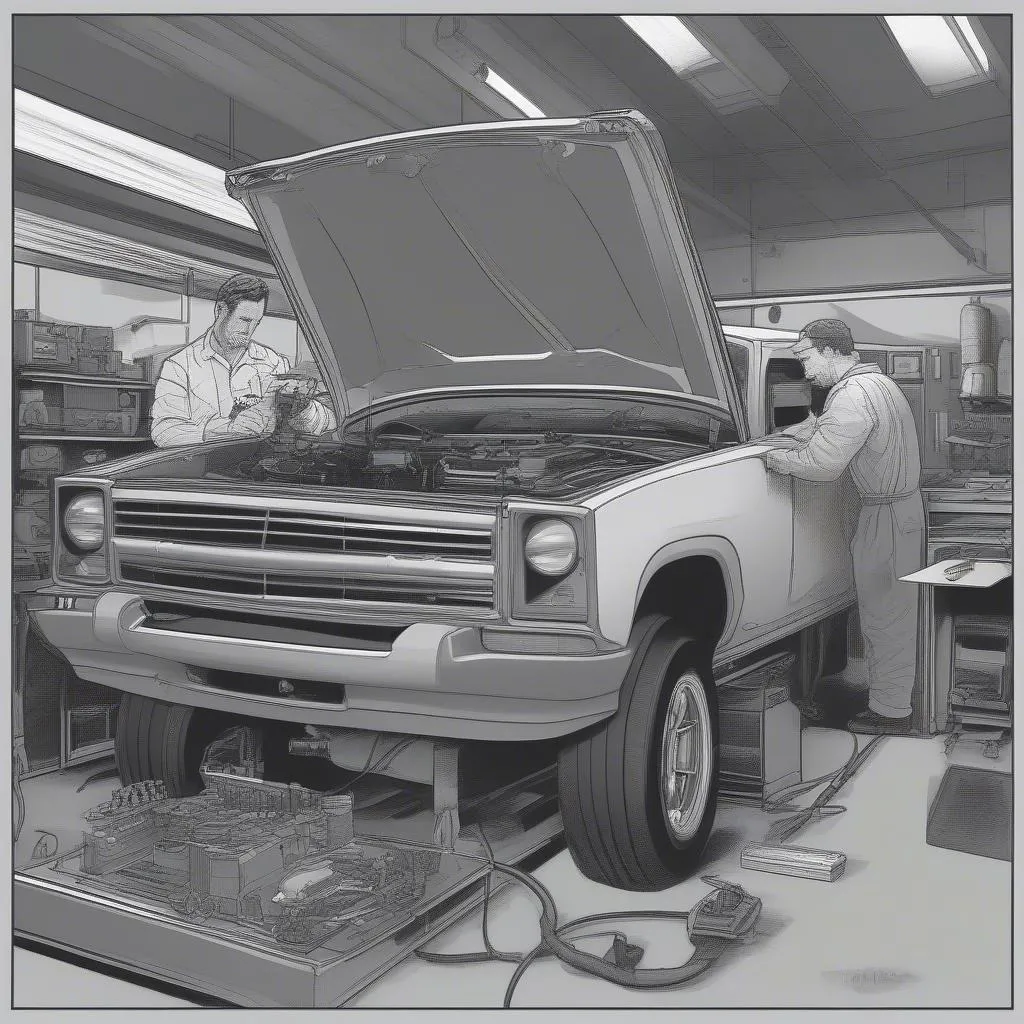Imagine this: You’re running late for work, you jump into your trusty 2018 Honda Civic, turn the key… and nothing. Silence. Your car won’t start. Panic sets in. What now?
Don’t worry, we’ve all been there! A car that refuses to start is a frustrating experience, but often it’s not a major issue. This article will guide you through the common reasons your car might be playing hard to get, and what you can do to get back on the road.
Understanding the Dreaded “Car Won’t Start” Situation
From a mechanic’s perspective, “car won’t start” can mean a world of things. Is it cranking but not turning over? Is there just a clicking sound? Or is it completely dead? Each scenario points to a different potential issue, and knowing the difference can save you time and money.
Technically speaking, when a car won’t start, it’s a failure in the starting system’s cycle: the battery’s power, the starter motor’s engagement, or the engine’s ability to ignite the fuel. It’s a delicate dance of electricity and mechanics, and a misstep anywhere can leave you stranded.
Economically, a car that won’t start can be a real headache. Towing fees, diagnostic tests, and potential repairs can put a dent in your budget. But by understanding the basics, you can be empowered to troubleshoot some issues yourself and potentially avoid unnecessary expenses.
Why Won’t My Car Start? Let’s Troubleshoot!
There are many reasons why your car might refuse to start, but let’s break down the most common culprits:
1. Dead Battery: The Usual Suspect
The most frequent offender is a dead or dying battery. You might have left your lights on overnight, or the battery has simply reached the end of its lifespan.
Symptoms: Dim interior lights, slow cranking, clicking noises when you turn the key.
Solution: Jump-start your car using jumper cables and another vehicle. If your battery is old, consider replacing it with a new one.
2. Faulty Starter Motor: The Engine’s Unsung Hero
If your battery seems fine, but you hear a clicking sound when you turn the key, the starter motor might be the problem. This hardworking component is responsible for turning the engine over to begin the combustion process.
Symptoms: Clicking sounds when turning the key, but the engine doesn’t crank.
Solution: Unfortunately, starter motors often require professional repair or replacement.
3. Fuel System Issues: No Fuel, No Fire!
A car needs fuel like we need coffee in the morning. If there’s a problem with the fuel pump, filter, or injectors, the engine won’t get the juice it needs to fire up.
Symptoms: Engine cranks but doesn’t start, sputtering engine, strong smell of gasoline.
Solution: Check your fuel gauge first! It might sound obvious, but it’s easy to overlook. If you have fuel, a mechanic can diagnose and address any issues with your fuel system.
4. Ignition System Problems: The Spark That Ignites It All
The ignition system provides the spark that ignites the fuel-air mixture in the engine cylinders. A faulty spark plug, ignition coil, or ignition switch can disrupt this process.
Symptoms: Engine cranks but doesn’t start, backfiring sounds, engine misfires.
Solution: A mechanic can diagnose the issue and replace any faulty components within the ignition system.
5. Sensor Malfunctions: The Brains of Your Car
Modern cars are equipped with numerous sensors that monitor everything from engine temperature to air intake. A malfunctioning sensor can confuse the car’s computer, preventing it from starting.
Symptoms: Engine cranks but doesn’t start, dashboard warning lights illuminate.
Solution: A diagnostic scan can pinpoint the faulty sensor, allowing for targeted repair or replacement.
 Car Battery Jump Start
Car Battery Jump Start
Real-Life Car Troubles:
I once met a mechanic in Austin, Texas – let’s call him Mark. Mark told me about a customer who was convinced his classic Ford Mustang had a serious engine problem because it wouldn’t start. After a thorough inspection, Mark discovered the culprit was a tiny, corroded wire connected to the starter solenoid. A simple cleaning and the Mustang roared back to life. The moral of the story? Sometimes the smallest things can cause the biggest headaches!
Beyond “Car Won’t Start”: Other Questions You Might Have
- My car turns over but won’t start. What does that mean? – This usually indicates a problem with the fuel system, ignition system, or sensors.
- Why is my car starting intermittently? – This could be due to loose connections, a failing fuel pump, or a faulty sensor.
- Can extreme weather cause my car not to start? – Yes, extreme cold can affect battery performance, while extreme heat can cause vapor lock in the fuel lines.
If you’re still experiencing starting problems after trying these basic troubleshooting tips, don’t hesitate to consult a professional mechanic. They have the expertise and tools to diagnose and repair more complex issues.
 Car Mechanic Engine Diagnosis
Car Mechanic Engine Diagnosis
Need Help with Your Car Diagnostics?
For expert advice and assistance with your car’s diagnostics tools, don’t hesitate to reach out to us via WhatsApp at +84767531508. Our team of automotive specialists is available 24/7 to provide support and help you get back on the road. You might also be interested in checking out our other articles related to common car issues:
- Car Won’t Turn Over But Lights Come On
- Car Turning Over But Not Starting
- Why Won’t My Car Start?
- Car Starts Sometimes and Sometimes Not
We’re here to help you navigate the world of car repair and keep your vehicle running smoothly.